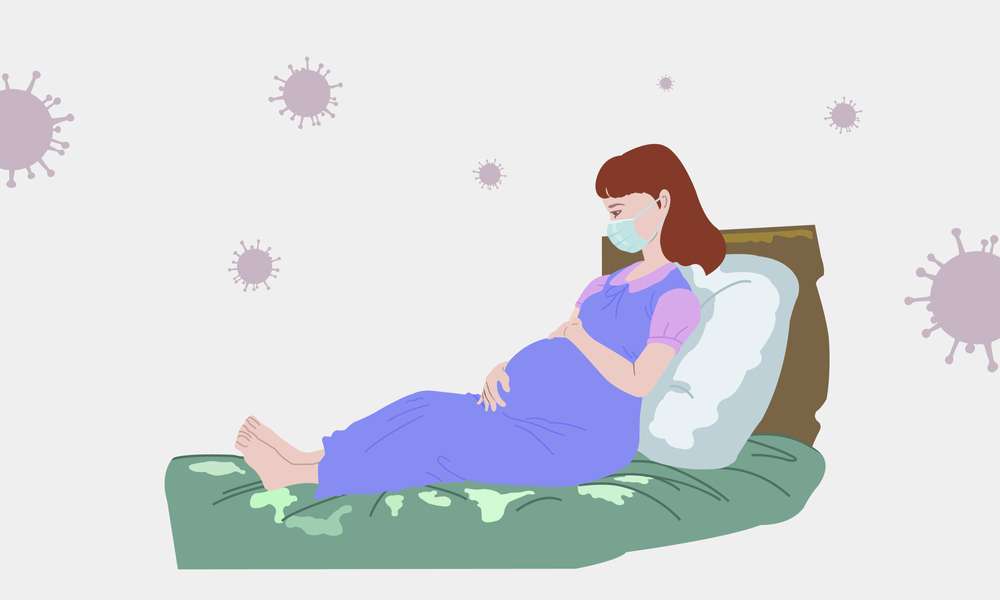Vaginal Itching
A frequent issue that many women deal with at some point in their lives is vaginal itching.It can be uncomfortable, boring and sometimes even annoying. However, understanding the causes, symptoms and available remedies for vaginal itching can help patients effectively deal with the problem and seek appropriate medical help if necessary.
What Causes vaginal itching?
Vaginal itching can be caused by a variety of factors, including infections, irritants, hormonal changes, and underlying medical conditions. To determine the appropriate treatment, you must identify the specific cause of vaginal itching. Here are some common causes of vaginal itching:
- Yeast infection (candidiasis): Yeast infections are a common cause of vaginal itching. They occur when there is an overgrowth of Candida fungus in the vaginal area. Symptoms may include itching, burning, redness, swelling, and a thick, white discharge that looks like cottage cheese.
- Bacterial vaginosis (BV): Bacterial vaginosis is an imbalance in the natural vaginal flora that leads to the excessive proliferation of harmful bacteria. This can cause vaginal itching, thin gray or white discharge with a fishy smell, and discomfort.
- Sexually Transmitted Infections (STIs): Some sexually transmitted infections, such as chlamydia, gonorrhea, and trichomoniasis, can cause vaginal itching and other symptoms such as unusual discharge, pain during urination or intercourse, and abdominal discomfort.
- Allergic reactions: Vaginal itching can result from an allergic reaction to products such as scented soaps, shower gel, cleaning products, latex condoms, spermicides or certain substances used in underwear.
- Irritants: Irritation or physical friction from tight clothing, rough sex, or excessive showering can cause vaginal itching.
- Hormonal Changes: Hormonal fluctuations during different stages of life, such as pregnancy, menopause or menstrual cycle, can affect the vaginal environment and cause itching or dryness.
- Atrophic vaginitis: Postmenopausal women may experience vaginal itching due to thinning and inflammation of the vaginal walls, a condition called atrophic vaginitis.
- Skin Conditions: Skin conditions such as eczema or psoriasis can sometimes affect the genital area, causing itching and discomfort.
- Chemical Irritants: Using scented health products, douches, or some lubricants can introduce chemical irritants into the vagina and cause itching.
- Stress: Psychological stress can affect the body’s immune response, potentially making the genital area more susceptible to infection and discomfort.
Note:
If you experience vaginal itching, be sure to see your doctor for a proper diagnosis and treatment plan. Self-diagnosis and self-medication are not always correct and can potentially worsen the condition. Depending on the cause, treatment options may include over-the-counter or prescription medications, lifestyle changes, and addressing potential triggers or irritants.
Symptoms:
The main symptom of vaginal itching is an unpleasant and persistent feeling of itching in the vaginal area. Other symptoms can include:
- Redness and swelling of the vulva
- Burning or tingling sensation
- Abnormal discharge (color, consistency, or odor)
- Pain or discomfort during urination or sexual intercourse
Reclamation and Management:
- Over-the-counter medications (OTC): Antifungal creams and suppositories for fungal infections can be purchased without a prescription. It is very important to follow the instructions carefully and complete the entire treatment.
- Prescription Medications: If the cause of the itching is a sexually transmitted disease or bacterial vaginosis, your doctor may prescribe antibiotics or antiviral medications.
- Good Hygiene: Following good hygiene practices, including gentle washing with a mild, fragrance-free soap and avoiding rinsing, can help prevent irritation.
- Cotton Underwear: Wearing breathable cotton underwear and avoiding tight clothing can reduce moisture and friction that can cause itching.
- Avoid Irritants: Identify and eliminate potential irritants from your routine, such as scented products, harsh cleansers, or latex condoms.
- Moisturizers and Lubricants: For postmenopausal women experiencing vaginal dryness, the use of vaginal moisturizers or lubricants can provide relief and improve comfort.
- See a doctor: If itching persists, worsens, or is accompanied by other worrisome symptoms, it is extremely important to seek professional medical help. A healthcare provider can accurately diagnose the cause and recommend appropriate treatment.
Vaginal itching and white discharge:
Vaginal itching and white discharge are symptoms that can have a variety of causes, including infections and non-infectious diseases. It is important to pay attention to these symptoms because they may indicate a specific problem that requires medical evaluation and treatment. Here are some common causes of vaginal itching and white discharge:
- Yeast Infection (Candidiasis): Yeast infections are a common cause of vaginal itching and white discharge that looks like cottage cheese. They are caused by the overgrowth of the Candida fungus. Other symptoms may include redness, swelling and discomfort.
- Bacterial Vaginosis (BV): BV is an imbalance of vaginal flora with an overgrowth of harmful bacteria. This can cause thin, white or gray discharge with a fishy smell, as well as itching and irritation.
- Trichomoniasis: This is a sexually transmitted infection (STI) caused by the parasite Trichomonas vaginalis. Symptoms include itching, burning, and greenish-yellow, foamy discharge.
- Sexually Transmitted Infections (STIs): Some sexually transmitted diseases, such as chlamydia and gonorrhea, can cause vaginal itching and be accompanied by unusual discharge.If you are sexually active, it is important to get tested and treated for sexually transmitted diseases.
- Allergic reactions: Itching and vaginal discharge can be caused by an allergic reaction to products such as scented soaps, detergents, latex condoms or spermicides. Recognizing and avoiding the allergen is extremely important.
- Hormonal changes: Hormonal fluctuations, such as those that occur during pregnancy, menopause, or the menstrual cycle, can cause changes in vaginal discharge and sometimes mild itching.
- Irritation: Vigorous sexual intercourse, excessive washing or vaginal douching can irritate the vaginal area and cause itching and discomfort.Practice good hygiene: Practice gentle hygiene by washing the genital area with mild, fragrance-free soap and warm water. Avoid douching as this could alter the natural vaginal flora.
- Wear cotton underwear: Choose breathable cotton underwear to reduce moisture and friction in the vaginal area.
- Avoid Irritants: Identify and eliminate potential irritants such as perfumes and harsh detergents.
- Over-the-counter medications: If you suspect a fungal infection, over-the-counter antifungal creams and suppositories can provide relief.Follow the instructions.
- See a doctor: If symptoms persist, worsen, or are accompanied by other worrisome symptoms such as pelvic pain, bleeding, or fever, it is extremely important to see a doctor for an accurate diagnosis and appropriate treatment. Prescription medication may be required to eliminate the cause.
- Remember that self-diagnosis and self-treatment are not always correct. Therefore, it is important to consult a professional doctor to properly treat and eliminate vaginal itching and discharge.
Vaginal itching and burning:
Vaginal itching and burning are common symptoms that can be caused by a variety of factors, including infections, irritants, hormonal changes, and medical conditions. These symptoms can be annoying and worrying. Therefore, it is important to identify the specific cause and initiate appropriate treatment. Here are some possible causes of vaginal itching and burning:
- Yeast Infection (Candidiasis): Yeast infections caused by overgrowth of the Candida fungus are a common cause of vaginal itching and burning. Other symptoms may include redness, swelling, and a thick, white discharge that looks like cottage cheese.
- Bacterial vaginosis (BV): Bacterial vaginosis is an imbalance in the vaginal flora that leads to the proliferation of harmful bacteria.This can cause vaginal itching, thin gray or white discharge with a fishy smell, and discomfort.
- Sexually Transmitted Infections (STIs): Some sexually transmitted diseases such as chlamydia, gonorrhea, and trichomoniasis can cause vaginal itching and burning, as well as other symptoms such as abnormal discharge, pain during urination or sexual intercourse, and vaginal discomfort in the abdominal cavity.
- Allergic reactions: Vaginal itching and burning can be caused by an allergic reaction to products such as scented soaps, shower gel, cleaning products, latex condoms, spermicides or certain substances used in underwear.
- Irritants: Irritation or physical friction from tight clothing, rough sex, or excessive douching can cause vaginal itching and burning.
- Hormonal changes: Hormonal fluctuations during different phases of life, such as pregnancy, menopause or the menstrual cycle, can affect the vaginal environment and cause itching and burning.
- Atrophic Vaginitis: Postmenopausal women may experience vaginal itching and burning due to the thinning and inflammation of the vaginal walls, a condition known as atrophic vaginitis.
- Chemical Irritants: The use of scented hygiene products, douches, or certain lubricants can introduce chemical irritants to the vaginal area, leading to itching and burning.
- Skin Conditions: Skin conditions like eczema or psoriasis can sometimes affect the genital area, causing itching and burning.
Note:
If you are experiencing vaginal itching and burning, it’s essential to consult a healthcare provider for a proper diagnosis and treatment plan. Self-diagnosis and self-treatment may not always be accurate and could potentially worsen the condition.Depending on the cause, treatment options may include over-the-counter or prescription medications, lifestyle changes, and addressing potential triggers or irritants. Early diagnosis and treatment are important to relieve symptoms and prevent complications.
Vaginal itching Cream:
If you are experiencing vaginal itching and are considering using a cream to relieve the discomfort, it is important to choose the right product based on the cause. Here are some popular types of creams and treatments that can be used to address various causes of vaginal itching:
- Antifungal creams: If a fungal infection (candidiasis) is suspected, over-the-counter antifungal creams or suppositories may be effective. These products usually contain active ingredients such as clotrimazole, miconazole or tioconazole. Follow the instructions on the packaging and use as directed.
- Hydrocortisone Cream: Over-the-counter hydrocortisone creams can help relieve itching and inflammation associated with a variety of skin conditions, including contact dermatitis or mild irritation. However, before using corticosteroid creams on the genital area, you should consult a doctor to rule out more serious medical conditions.
- Prescription Medications: If the itching is caused by a more serious or persistent infection, such as: For example, if you have a resistant yeast infection or bacterial vaginosis, your doctor may prescribe stronger antifungal or antibiotic creams or suppositories.
- Vaginal Moisturizers: For postmenopausal women who experience vaginal dryness and itching due to atrophic vaginitis, over-the-counter vaginal moisturizers may provide relief. These products are designed to moisturize and soothe vaginal tissue.
- (HRT)Hormone replacement therapy :In some cases, healthcare providers may recommend hormone replacement therapy, which may include estrogen-containing creams, tablets, or patches, to relieve vaginal symptoms related to hormonal changes.
- Barrier Creams: In cases where the itching is caused by irritants or allergies, using a barrier cream such as zinc oxide ointment or petroleum jelly can help protect the skin and reduce irritation.
- Consult your doctor: Before using any creams or treatments to relieve vaginal itching, be sure to consult your doctor. Self-diagnosis and self-treatment may not be accurate and some medical conditions require a correct diagnosis to determine the most appropriate treatment.
When using creams or products on the genital area, follow these general guidelines:
- Wash your hands thoroughly before and after use.
- Use the product according to the instructions on the package or as directed by your doctor.
- Use clean, gentle techniques to avoid further irritation.
- Avoid sexual activity while using certain products such as vaginal creams or suppositories, as these may weaken latex condoms or diaphragms.
- If symptoms persist, worsen, or are accompanied by other worrisome symptoms such as pelvic pain, bleeding, or fever, seek medical attention immediately. A doctor can accurately diagnose the cause of vaginal itching and recommend appropriate treatment.
Conclusion:
Vaginal itching is a common problem that can have a variety of causes, including infections, allergies, hormonal changes, and irritants.While some cases can be treated with over-the-counter medications and lifestyle changes, others may require prescription medication and a medical evaluation. Ignoring persistent vaginal itching can lead to more serious problems. It is therefore important to treat the problem quickly and see a doctor if necessary. Open and honest communication about vaginal health is crucial as it allows patients to take responsibility for their own well-being and seek appropriate care and advice.


